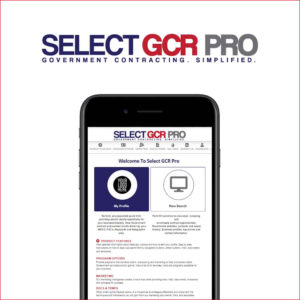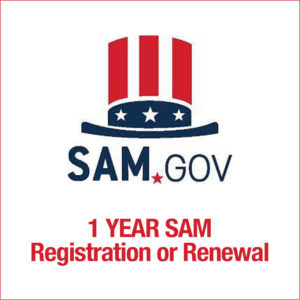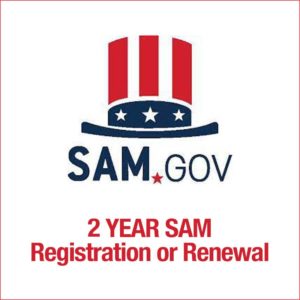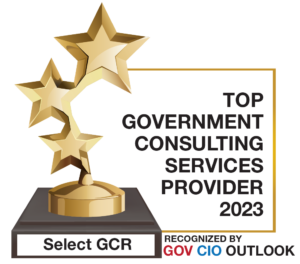Federal IT contracts allow businesses to provide technology solutions to the government. This article will show you how to navigate the procurement process, prepare your business, and submit winning bids.
Key Takeaways
-
Understanding the various types of federal IT contracts, such as IDIQ, GWACs, and BPAs, is essential for identifying and pursuing the right contracting opportunities.
-
Effective preparation for federal IT contracts includes registering in SAM, obtaining relevant certifications, and developing a strong capability statement to enhance visibility and competitiveness.
-
Maintaining successful contracts involves diligent contract administration, contract management, and performance monitoring, ensuring compliance with federal guidelines, and staying updated on industry trends to adapt strategies effectively.
Understanding Federal IT Contracts

Federal IT contracts are pivotal in sustaining the technological backbone of government operations. These contracts enable IT companies to provide essential services and solutions that ensure the efficiency and security of governmental activities. To compete effectively, businesses must navigate the federal procurement landscape and comply with stringent government regulations.
The federal contracting process can be intricate, involving various types of contracts and a network of key players. Grasping different contract opportunities, including various contract vehicles, and understanding the major contractors in the field is fundamental. This knowledge lays the foundation for a strategic approach to federal contracting.
Types of Federal IT Contracts
Federal IT contracting offers several types of contracts, each designed to meet specific procurement needs. Indefinite Delivery, Indefinite Quantity (IDIQ) contracts, for instance, allow federal agencies to place task orders for an indefinite quantity of supplies or services within a fixed period, providing flexibility and efficiency. Governmentwide Acquisition Contracts (GWACs) are another type, offering pre-competed contracts that enhance inter-agency collaboration and provide tailored IT solutions.
Blanket Purchase Agreements (BPAs) simplify the procurement process by establishing agreements with contractors. These agreements help meet sourcing and compliance goals efficiently, making it easier for agencies to acquire the necessary IT services and products.
Identifying the right opportunities for your business depends on understanding these contract types.
Key Players in Federal IT Contracting
In the federal IT contracting landscape, several prime contractors dominate the field. Lockheed Martin leads as the top federal IT contractor, generating over $12 billion in revenue from government contracts. Other significant companies include Leidos and Northrop Grumman, with revenues of approximately $4.7 billion and $3.2 billion, respectively.
Companies like SAIC, Raytheon, and BAE Systems also rank among the top revenue-generating IT contractors for the federal government. These rankings, compiled from government databases like the GSA’s Federal Procurement Data System and USASpending.gov, highlight the competitive nature of the industry and the importance of understanding the major players.
Finding Contract Opportunities

Locating federal IT contracting opportunities is a dynamic process that requires regular monitoring and strategic use of various resources. Several databases and platforms provide access to these opportunities, each offering unique tools to help narrow down search results and find the most relevant contracts for your business.
Federal agencies frequently update their listings, reflecting changing needs and budget constraints. Regularly monitoring these updates helps identify and capitalize on new contract opportunities.
SAM.gov
SAM.gov serves as the primary portal for federal contract opportunities, providing detailed and searchable federal procurement data for vendors. This platform is the official source for federal contract listings, allowing users to access comprehensive information about available opportunities.
Using filters and search tools allows businesses to effectively navigate SAM.gov to find matching contracts. Regularly checking this platform ensures you stay informed about new opportunities and upcoming solicitations.
GSA eLibrary
The GSA eLibrary is another valuable resource for finding IT products and services listed under GSA Schedules. This platform provides a comprehensive selection of IT offerings, facilitating the procurement process for federal agencies.
Exploring the GSA eLibrary helps businesses identify potential contract opportunities and understand the competitive landscape.
Agency Websites
Individual federal agency websites are essential resources for locating specific IT contract opportunities and understanding contracting requirements. These websites often feature dedicated sections for current contracting opportunities, making it easier for businesses to find relevant listings.
These websites help businesses identify specific needs and tailor their proposals accordingly. Each agency has unique mission requirements and budget constraints, so understanding these nuances is critical for successful government contracting.
Preparing Your Business for Federal IT Contracts
Effectively preparing your business for federal IT contracts involves a thorough assessment of resources and capabilities to ensure alignment with government compliance requirements. This preparation includes several key steps, such as registering in the System for Award Management (SAM), obtaining necessary certifications, and building a strong capability statement.
Following these steps improves a business’s visibility and competitiveness in the federal marketplace. Each step plays a crucial role in laying the groundwork for successful federal contracting.
Registering in SAM
Registering in the System for Award Management (SAM) is a mandatory step for any business seeking to bid on federal contracts. This vendor registration process increases a business’s visibility among federal agencies, making it easier for them to be found by contracting officers.
The SAM registration process involves providing detailed information about your business, including financial details, capabilities, and past performance. Registering in SAM is crucial for gaining access to federal contracting opportunities and ensuring compliance with federal regulations.
Obtaining Necessary Certifications
Certifications such as 8(a) and HUBZone can significantly enhance a business’s eligibility for federal contracts. These certifications demonstrate a company’s commitment to specific standards and can improve its chances of winning contracts by meeting government eligibility requirements and eligibility criteria.
Obtaining these certifications involves a rigorous application process, but the benefits are substantial. They can increase your competitiveness in the federal marketplace and open doors to exclusive contracting opportunities.
Building a Strong Capability Statement
A well-crafted capability statement is crucial for showcasing your business’s strengths and past performance to potential government clients. This document should include core competencies, relevant certifications, and a summary of past performance.
Effectively communicating your capabilities and experience can set your business apart from competitors and increase your chances of securing federal contracts. A strong capability statement is an essential tool in your government contracting arsenal.
Marketing to Government Agencies

Marketing to government agencies requires a tailored approach that addresses specific agency needs and regulatory requirements. Establishing a solid marketing strategy is essential for IT service providers aiming to secure contracts.
Understanding the unique procurement processes of government agencies and leveraging available small business resources can significantly enhance your marketing efforts. Developing an effective procurement strategy can open doors to valuable contract opportunities.
Networking with Contracting Officers
Building relationships with contracting officers and procurement officials is crucial as they influence procurement decisions and can advocate for your services. Establishing direct communication with contracting officers through clear and concise emails can significantly enhance your visibility in the bidding process.
Contracting officers can provide insights into upcoming solicitations and industry events, making it important to engage with them effectively. Strong relationships with contracting officers are essential for improving your chances of securing federal IT contracts.
Attending Industry Days and Conferences
Participating in industry events allows IT contractors to showcase their capabilities directly to government representatives and network with key decision-makers. These events provide critical networking opportunities that can lead to collaborations and insights into effective procurement practices.
Industry days and conferences offer valuable opportunities to connect with key agency representatives and better understand government requirements. Attending these events positions your business for success in the federal marketplace and aligns with national interest action.
Leveraging Small Business Offices
Small business offices within government agencies can provide valuable insights, procurement assistance, and support for identifying contracting opportunities for small businesses. These offices offer guidance and resources that help contractors navigate the procurement landscape.
Utilizing small business offices can enhance your chances of success in securing federal contracts. They provide crucial support and insights that can make a significant difference in your contracting efforts.
Bidding on Federal IT Contracts

Bidding on federal IT contracts involves understanding the specific requirements outlined in RFPs (Requests for Proposals) and RFQs (Requests for Quotations) and developing competitive pricing strategies. A key part of this is navigating the solicitation process, which includes comprehending the federal marketplace and presenting a compelling proposal.
Mastering the bidding process significantly increases the chances of securing federal contracts. This involves careful preparation and strategic planning.
Understanding RFPs and RFQs
Requests for Proposals (RFPs) and Requests for Quotations (RFQs) are formal documents used by agencies to solicit bids for federal IT contracts. RFPs typically outline detailed project requirements and evaluation criteria, including specific proposal requirements, requiring bidders to demonstrate their qualifications and approach.
RFQs, on the other hand, focus more on pricing and availability, often used for simpler contracts. Understanding the differences between these documents and how to respond to each is crucial for a successful bid.
Pricing Strategies
Developing a competitive pricing strategy for federal contracts requires a detailed cost analysis of both costs and market rates. A successful pricing strategy should balance competitiveness with profitability, ensuring that bids are attractive yet feasible.
Effective pricing strategies involve understanding the cost structure of your services and aligning your pricing with the agency’s expectations while ensuring profitability. This balance is essential for winning contracts and maintaining a sustainable business.
Submitting a Winning Proposal
Creating a standout proposal involves addressing all mandatory requirements in the solicitation while clearly demonstrating the value and benefits of your solution to the agency. A successful proposal should articulate how the contractor will meet project goals, including demonstrating relevant experience, a clear methodology, and meeting the evaluation criteria.
Effective proposals often include a strong executive summary that outlines the benefits of your approach and how it aligns with the government’s objectives. Clear and compelling proposals can significantly increase your chances of winning federal contracts.
Managing Awarded Contracts

Effective management of awarded contracts is crucial for maintaining contract compliance and ensuring the success of federal IT initiatives. This involves diligent tracking of compliance with terms and deliverables and ensuring alignment with federal guidelines.
Efficient contract management requires a proactive approach to handling any modifications or extensions that may arise during the contract lifecycle. Effective contract management ensures long-term success in the federal marketplace.
Contract Administration
Key contract administration duties include reviewing contractor proposals, overseeing financial aspects, and ensuring that required reports are submitted in a timely manner. When modifications to contracts are necessary, a formal process must be followed to ensure compliance with federal guidelines.
Meticulous documentation of contract modifications is essential to avoid disputes or claims. Effective contract administration is crucial for maintaining clarity and compliance throughout the contract lifecycle.
Performance Monitoring
Establishing clear performance metrics is crucial for effectively monitoring contractor deliverables and ensuring they meet federal agency standards. Regular performance evaluations can help identify areas for improvement and ensure contract deliverables align with agency expectations.
Utilizing performance metrics and audit trails is essential for effectively monitoring the deliverables of federal IT contracts. Regular assessments help identify any discrepancies between deliverables and agency expectations early on, ensuring the successful completion of the contract.
Handling Modifications and Extensions
Modifications and extensions are common aspects of federal IT contracts that allow flexibility for changes in scope, time, or funding. When handling modifications and contract extensions, contractors must submit a formal request to the contracting officer, detailing the reasons and proposed changes, which should be documented in writing.
To seek an extension, contractors should ensure they provide compelling justification based on project needs and past performance outcomes, and adhere to any required timelines for the request.
Staying Updated on Federal IT Contracting Trends
Staying updated on federal IT contracting trends and industry trends is essential for maintaining a competitive edge. Key trends impacting federal IT contracting include the increased use of technology like AI and a focus on cybersecurity. Leveraging tools like webinars, newsletters, and social media platforms can help businesses stay informed about these trends and adapt their strategies accordingly.
Staying current with industry developments allows businesses to anticipate changes in the federal marketplace and position themselves for new opportunities. This proactive approach is crucial for long-term success in federal IT contracting.
Technology Programs Blog
Subscribing to blogs focused on technology programs can provide insights into new technology initiatives and contracting possibilities. These blogs offer timely information on new federal IT initiatives and contracting opportunities, helping businesses stay ahead of the curve.
Technology blogs can also provide valuable insights into the latest trends and developments in the federal IT sector. By staying informed, businesses can better align their strategies with emerging market needs and opportunities.
Industry Reports and Publications
Regularly reviewing industry reports helps contractors stay informed about market trends and best practices in federal IT contracting. These reports often highlight emerging market trends, enabling businesses to align their strategies with federal IT contracting priorities.
Industry publications provide additional information and resources that can help businesses navigate the complex federal contracting landscape. By staying informed, businesses can make more strategic decisions and improve their chances of securing federal contracts.
Summary
Securing federal IT contracts is a multifaceted process that requires careful planning, strategic marketing, and effective management. By understanding the types of federal IT contracts, identifying key players, finding contract opportunities, preparing your business, marketing to government agencies, mastering the contracting process, and mastering the bidding process, businesses can significantly enhance their chances of success.
Effective management of awarded contracts and staying updated on industry trends are equally important for long-term success. By following the steps outlined in this guide, businesses can navigate the complexities of federal IT contracting and achieve their growth objectives.
Frequently Asked Questions
What are the key types of federal IT contracts?
The key types of federal IT contracts, also known as procurement vehicles, are Indefinite Delivery, Indefinite Quantity (IDIQ) contracts, Governmentwide Acquisition Contracts (GWACs), and Blanket Purchase Agreements (BPAs). Each serves distinct purposes in facilitating the procurement of IT services for federal agencies.
How can I find federal IT contract opportunities?
To find federal IT contract opportunities, you can explore contracting databases such as SAM.gov and GSA eLibrary, as well as the websites of specific agencies. These resources provide comprehensive listings of available contracts.
Why is registering in SAM important for federal contracting?
Registering in the System for Award Management (SAM) is crucial because it enhances a business’s visibility to federal agencies and is a requirement for bidding on federal contracts. The SAM acts as a comprehensive vendor registration system, making it a vital step for any business aspiring to engage in federal contracting.
What certifications can enhance my eligibility for federal IT contracts?
Certification programs like 8(a) and HUBZone can substantially enhance your eligibility for federal IT contracts by improving your business’s competitiveness in securing opportunities. Consider pursuing these certifications to strengthen your position in the federal contracting landscape.
How do I submit a winning proposal for a federal IT contract?
To submit a winning proposal for a federal IT contract, it is essential to address all mandatory requirements in the solicitation through thorough proposal evaluation, clearly demonstrate the value of your solution, and include a compelling executive summary. By focusing on these elements, you enhance your chances of success.





